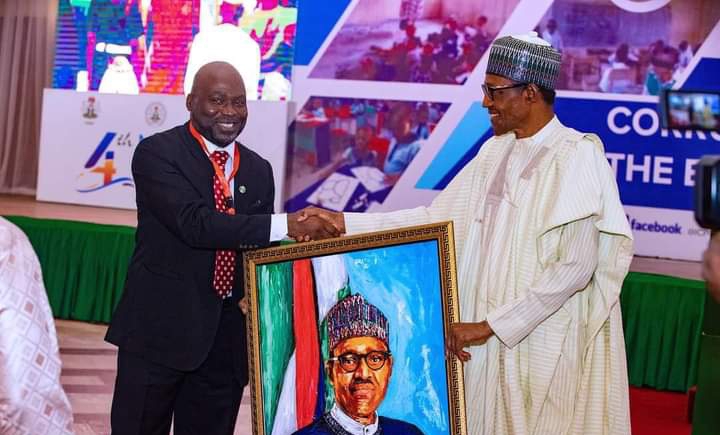The Independent Corrupt Practices and Other Related Offences Commission (ICPC) has disclosed how it uncovered the fraudulent insertion of over N7 billion in the budget by a politically exposed person in the name of empowerment.
The ICPC Chairman, Professor Bolaji Owasanoye, SAN, disclosed this at the 4th National Summit on Diminishing Corruption in the Public Sector held at the State House Conference Centre on Tuesday, in Abuja.
Owasanoye revealed that the intensified scrutiny of personnel and capital cost of Ministries, Departments and Agencies (MDA) by ICPC has led to proactive restrictions of surpluses or duplications in the budget.
He decried how some unscrupulous persons undermined the system by abusing the budgetary process for their gains.
“Just last week the Commission in collaboration with the Budget Office and stakeholders met with some MDAs on the recurring surpluses in their payroll to determine proactive measures to improving the budget process. We also actively review the budget to prevent abuse by senior civil servants and PEPs who sometimes personalise budgetary allocation for direct benefit. In one case, a PEP successfully increased the budget of an agency in order for the agency to buy a property from him.
“In another case the PEP inserted soft projects worth over N7 billion for a catchment population of about one million people in the name of empowerment. Both cases are under investigation.”
He said ICPC reviews of special funds meant to improve education delivery such as UBEC and TETFUND has also revealed continued abuses and breach of procurement standards and compromise of statutory mandates while a System Study and review on SUBEB in six states for 2019-2020 revealed that the intention of UBE law to support states to improve basic education is frustrated by lack of commitment by state governments in not providing matching grants amongst other defaults.
The ICPC Boss also disclosed that the Commission, in support of government’s effort to improve revenue generation has recovered N1.264 billion tax in 2022.
- Advertisement -
He maintained that ICPC would continue to investigate diversion of tax and other statutory revenues.
The high point of the Summit was the presentation of Public Service Integrity Award to Superintendent Daniel Itse Amah, a police officer who rejected a bribe of $200,000 from armed robbery syndicate, and the presentation of a plaque and a painting made by an ICPC officer, Mamman Kuru John, using the most recent and modern mode of painting known as ‘impacto’.
The keynote speaker and former chairman of the Independent National Electoral Commission (INEC), Professor Attahiru Jega, decried how some reform policies formulated with good intentions are often circumscribed by endemic in the education sector.
He listed such reforms to include Procurement Act 2007 which requires that contracts of certain threshold should seek approval either at the Ministerial Tenders Board (MTB) or at the Bureau for Public Procurement (BPP), requirement by members of the National Assembly that every Vice Chancellor must appear to defend their budgetary proposals before funds would be appropriated and the recent requirement by the federal government that no university should recruit any staff, even to fully existing vacancies, without at least three layers of approvals by the Federal bureaucracy at the NUC, Head of Civil Service of the Federation and the Office of the Accountant-General of the Federation.
“All these three policies/measures, in spite of the good intentions, which may have underlined them, not only undermined the relative autonomy of the universities, but have also introduced extraneous relations and influences laden with corrupt practices. Submissions made by Vice Chancellors to, especially, MTBs often returned with reversed contract awards for extraneous and inexplicable reasons.
He added saying “in the past, the NUC presented and defended the budget for federal universities, and appropriated funds were shared/allocated to universities transparently, using a widely known formula. Nowadays, VCs who go to the National Assembly to present/defend their universities budgets are ‘compelled’ or ‘induced’ to make deals, in order to, either prevent cuts in their budgetary proposals or so as to get substantial padding in their appropriations, for projects to be executed solely by the Senator who negotiated the deal”
“With regards to obtaining approval, prior to recruitment or replacement of staff, there is evidence to suggest that VCs have to guarantee slots for the approving authorities to secure approvals. In filling those slots, no regard is paid to advertised vacancies and required qualifications for the positions and, almost invariably, more unrequited non-academic staff are employed, further distorting the ratio of non-academic staff to academic staff in the NUC guidelines.
While speaking on the negative consequences of corruption in the education sector, Professor Jega observed that its solutions cannot be found in isolation saying strategies for its resolution would necessarily have to be in the context of a comprehensive grand strategy for addressing corruption in the wider public sector.
He also called for active citizenry in the demand of quality education for their children saying doing so would make the sector accountable.




Comments are closed.